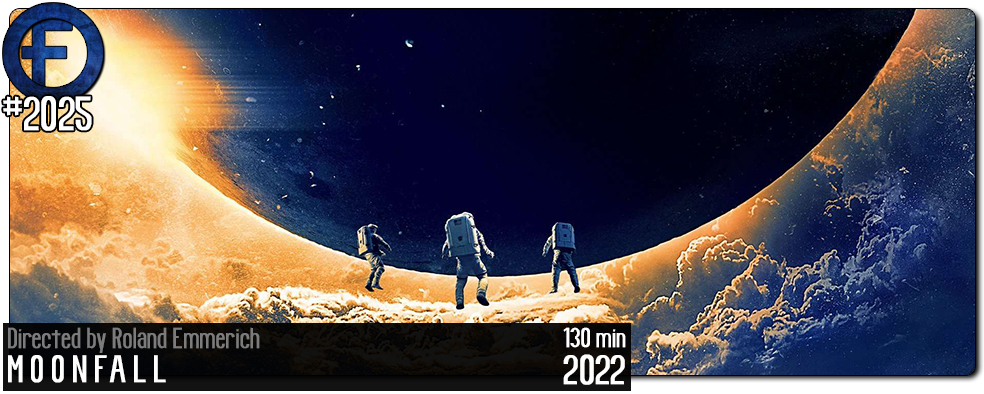Movie Review – Moonfall
Principal Cast : Patrick Wilson, Halle Berry, John Bradley, Michael Pena, Charlie Plummer, Kelly Yu, Donald Sutherland, Eme Ikwuakor, Carolina Bartczak, Maxim Roy, Frank Schorpion, Stephen Bogaert, Andreas Apergis, Kathleen Fee.
Synopsis: A mysterious force knocks the moon from its orbit around Earth and sends it hurtling on a collision course with life as we know it.
********
So, what happens if the moon… falls? That’s the preposterous logline of Roland Emmerich’s latest disaster epic, Moonfall, an effects-heavy expenditure of millions of dollars in making a film so despairing of any logic, reason or human emotion it might as well be a newly minted tub of vanilla icecream. Led by Patrick Wilson doing his best “Will Smith in Independence Day” impression, Halley Berry doing her best to spout lines of cringeworthy dialogue with any sense of faith that they matter, and a lightweight comedic performance by Game Of Thrones’ John Bradley in full blown stuttering nutjob mode, Moonfall’s crescendo of planetary carnage is extravagant and excessive and runs afoul of the very thing Emmerich has struggled to find with many of his films in recent years: intelligence.
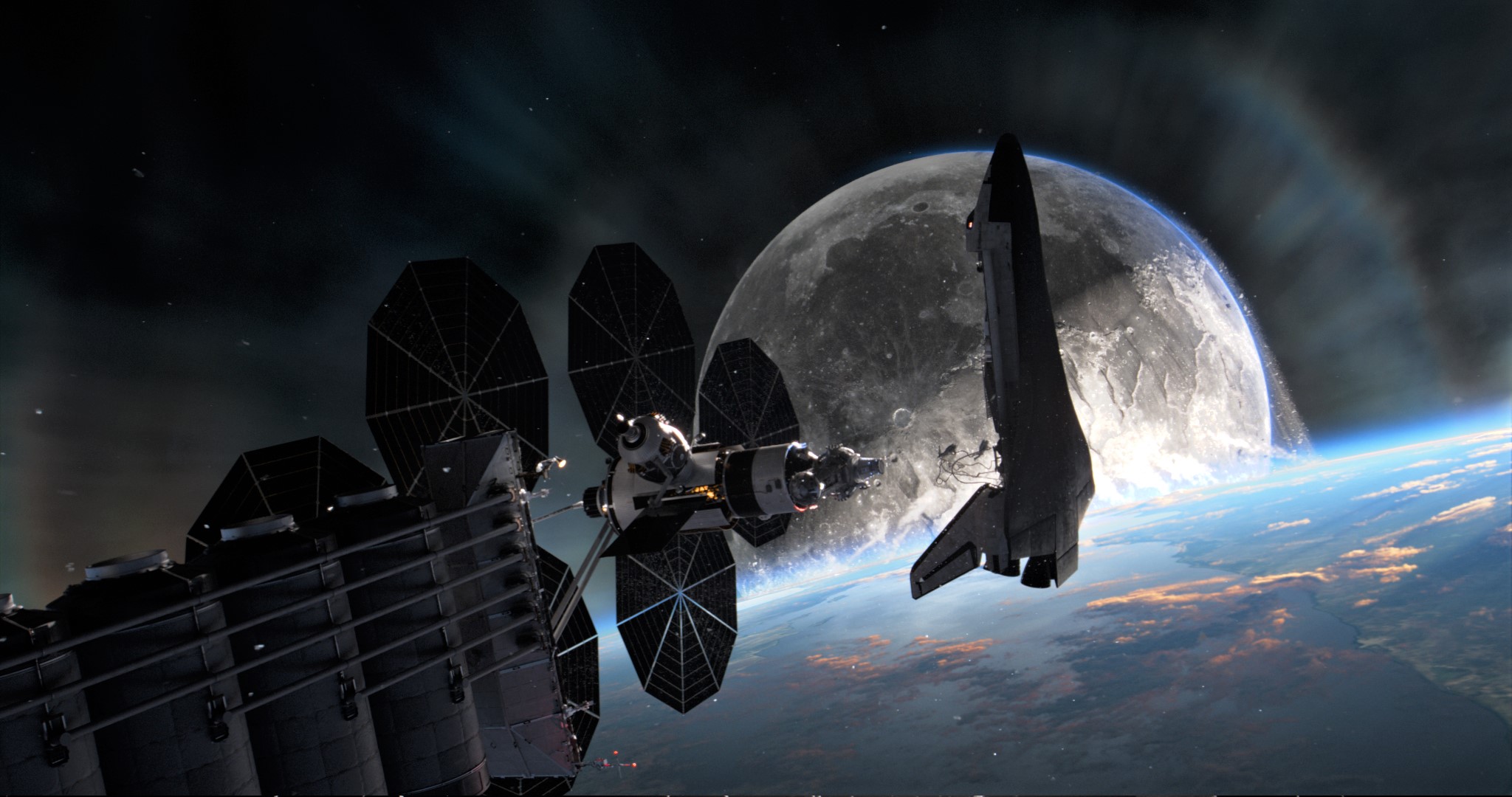
In Roland Emmerich’s oeuvre there are few things that give him and paying audiences a woody quite like destructo-porn. Often, he hits the mark with cheery epics running with a complete lack of physics in films such as Day After Tomorrow (where Jake Gyllenhall literally outruns global warming), 2012 (where John Cusack outruns Los Angeles falling into the ocean and Woody Harrelson gets blown up in Yellowstone), or even his not-quite-a-hit sequel Independence Day: Resurgence, where Liam Hemsworth tried to outrun being a believable actor. Then there’s films like Moonfall, a movie without an ounce of realism or a shred of scientific credibility, once more pitting a sprawling ensemble cast of seemingly disparate characters into the End Of The World and seeing just how many of them make it through to the end credits intact. Moonfall is not only a disaster movie, is a disastrous movie, inasmuch as the film feels like a bad pastiche of almost all other Emmerich films, tropes and all, with execrable dialogue, disingenuous characters and absurd plot contrivances that will make grown moviegoers weep for a lick of common sense.
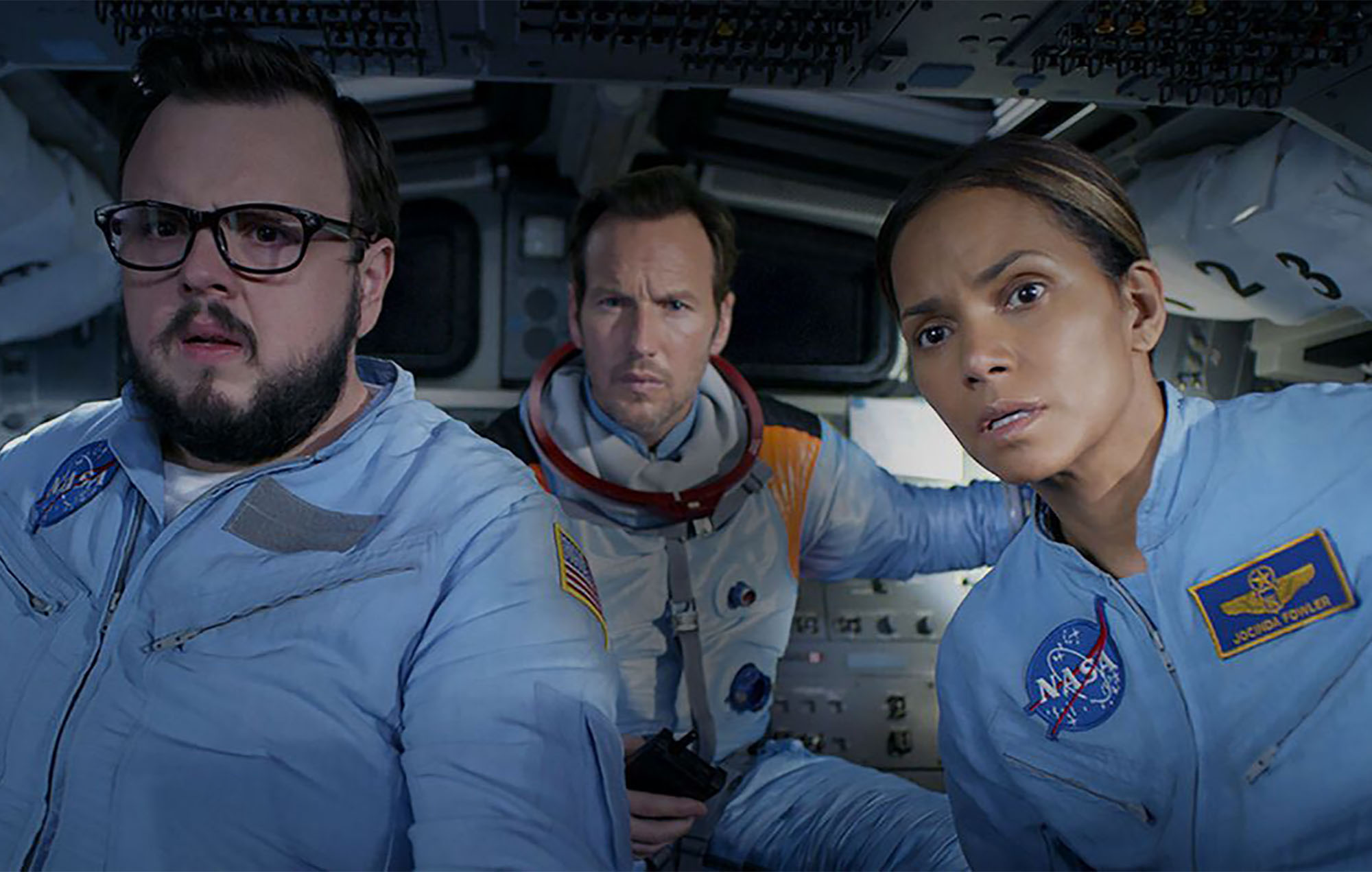
Written by Emmerich, Harald Kloser and Spenser Cohen (the latter of whom worked on a previous disaster film in which Michael Pena starred, Extinction, in 2018), Moonfall’s gloriously optimistic premise involves scientists, among them megastructurist (don’t ask, for fucks sake) KC Houseman (John Bradley) discovering that the moon is gradually shifting out of orbit, drifting closer to the Earth. Disgraced astronaut Brian Harper (Patrick Wilson) and newly designated NASA Director Jocinda Fowler (Halle Berry) take on the responsibility of saving the planet by flying a retired-but-suddenly-reinstated space shuttle into orbit to stop it: among the film’s other discoveries is a kind of sentient swam of moon-based artificial intelligence that shreds any organic life it comes into contact with, and this AI has a long, deadly history with humankind that won’t end well if Houseman, Fowler and Harper fail in their mission.
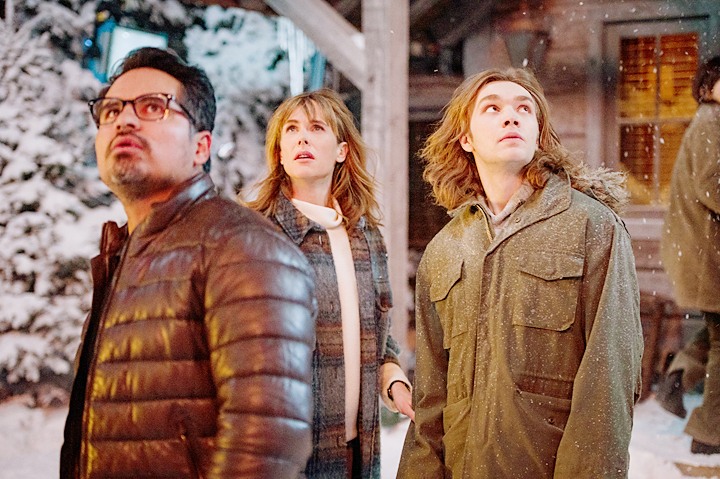
Moonfall forgets to ask even the most basic questions. Like, how does gravity work? How does flying through space work? How do human interactions form the basis for any emotional heft inside a motion picture, and why are they almost totally absent in this one? Simple, generic questions even a preschooler might ask. Sadly, none of these questions were asked in the script-vetting stage by Lionsgate, the producing studio here, and they really should have been. Among the various uninteresting sidebar plotlines and pointlessly forced third and fourth-tier characters all vying for perplexing amounts of screen time, apparently it’s as easy to launch a space shuttle with three people aboard as it is to charge your Telsa at night (the number of times Elon Musk gets a callout in this film, I’m wagering he co-funded this dreck in some way). And apparently this film has a similar grasp on physics as the worst of the Fast & The Furious films, I half expected Vin Diesel to show up yabbering about FAHHMILY whilst ducking a weaving space shuttle as it blasts through the atmosphere and into the moon’s path. You can’t drive a shuttle like you drive to the shops, guys. Physics doesn’t work that way. A crucial moment in the film involves the revelation that the moon is orbiting in a heliocentric pattern, with each swing past the planet bringing it closer and closer and causing enormous gravitational disasters. Unlike Will Smith, who punched an alien and saved the world, Patrick Wilson can’t just punch the moon and stop this crap from going on, so he, like we, have to sit through it until the bitter, laughable end.
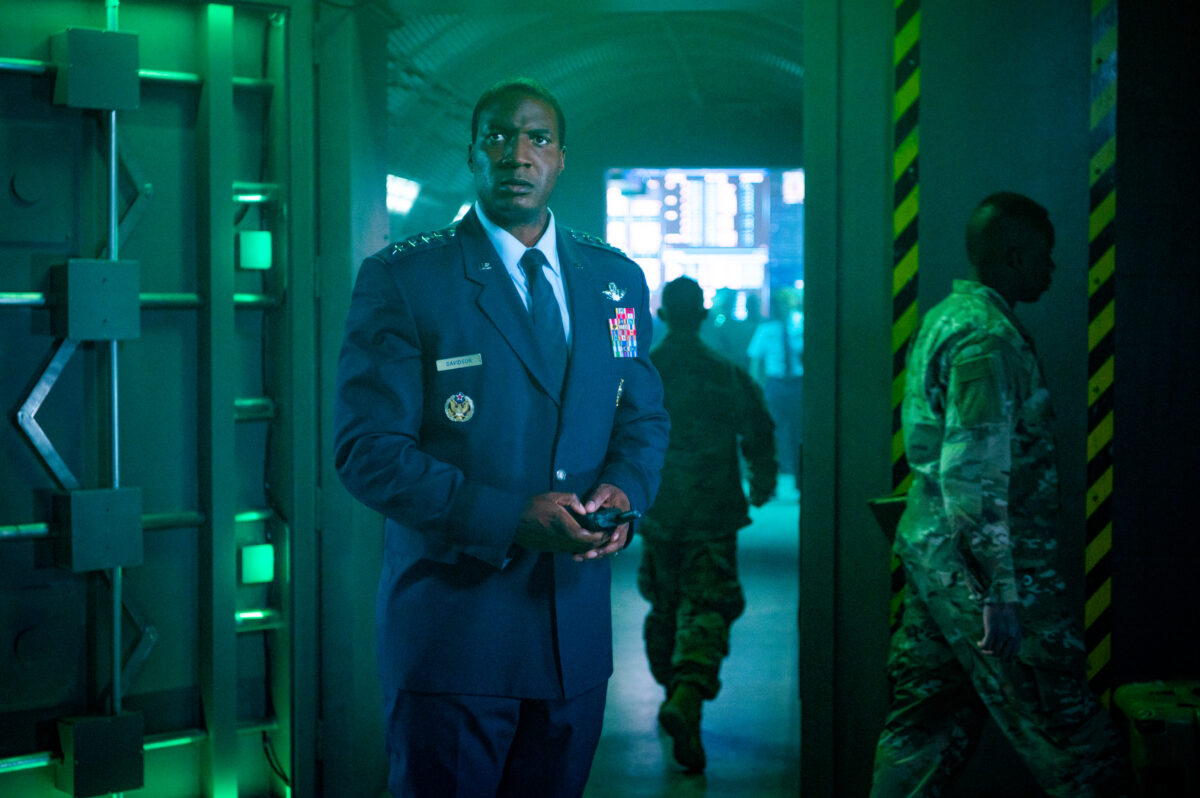
Now Rodney, you might say, sitting there on your phone or laptop and shaking your head, how can you take any of these kinds of films seriously? They are inherently ridiculous. Aren’t they all simply grand popcorn fun? Yeah, sure, they are, but at the very least you expect them to have a modicum of internal truth, some semblance of realism within its own universe that makes some kind of sense. People driving through earthquake-ravaged Los Angeles in a stretch limousine stretches credulity to snapping, but at least you can kind of see something like that maybe happening in your minds eye. With Moonfall, it forges its own, entirely separate and unique reality in which people fly through the air unharmed, drive through a meteor shower like a small-scale hailstorm, and escape certain annihilation from gravitational stresses strong enough to tear mountaintops into space. The film doesn’t ask us to suspend our disbelief, it forces you to confront it, which is a most uncomfortable feeling. Not a single thing occurs in Moonfall that makes a bit of sense; the plot is intrinsically awesome, and Emmerich crafts some genuinely jaw-dropping visuals in his quest to rewrite human history again (where were the Mayans on this shit, eh?), but both he and his writers squander any credibility by asking us to believe in stakes so stupidly agog, so egregiously written, and so preposterously delivered, you cannot help but fail utterly.
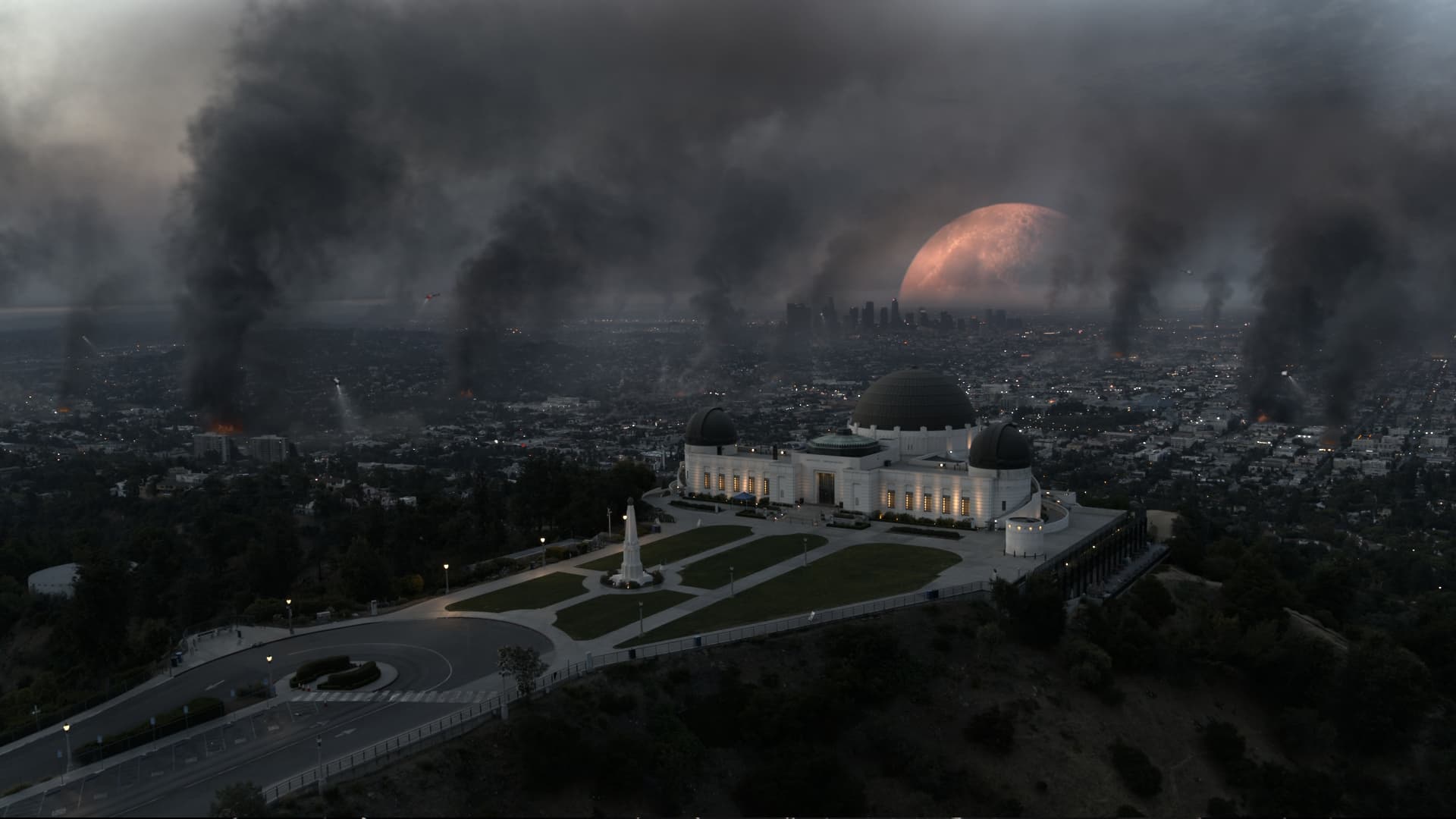
As he has with all of his disaster epics, Emmerich falls back into his trademark schtick once again. There’s the people nobody believes, the people in charge who don’t believe what’s going on, the rapid disintegration of civil order, the various family units hoping to come together and survive the cataclysm despite almost all of them being underage and impossibly unmemorable, a gaggle of nerdy scientific plot-givers, and the requisite threat of nuclear missiles being used by the US military to solve the world’s problems. By and large the formula – that’s what this is, formula – works in its most simple form. Character interact, plot exposition is delivered with an appropriate level of gravitas by actors exceeding their ability to make it convincing, and the chess pieces and story twists move into place with the requisite alacrity of an apocalyptic showdown of such magnitude. The pieces move… but this time, they exemplify the charmless, by-the-numbers routineness modern blockbusters have largely skirted in recent times. The simple fact is: the awe is missing. Emmerich forgets to make us gasp in wonder at this kaleidoscope of destruction and visuals he’s crafted, no matter how meticulously. We feel empty watching this graceless spectacle, there’s no import or definition to the shenanigans other than “oh hell, we gotta planet to save” rah rah hysterics.
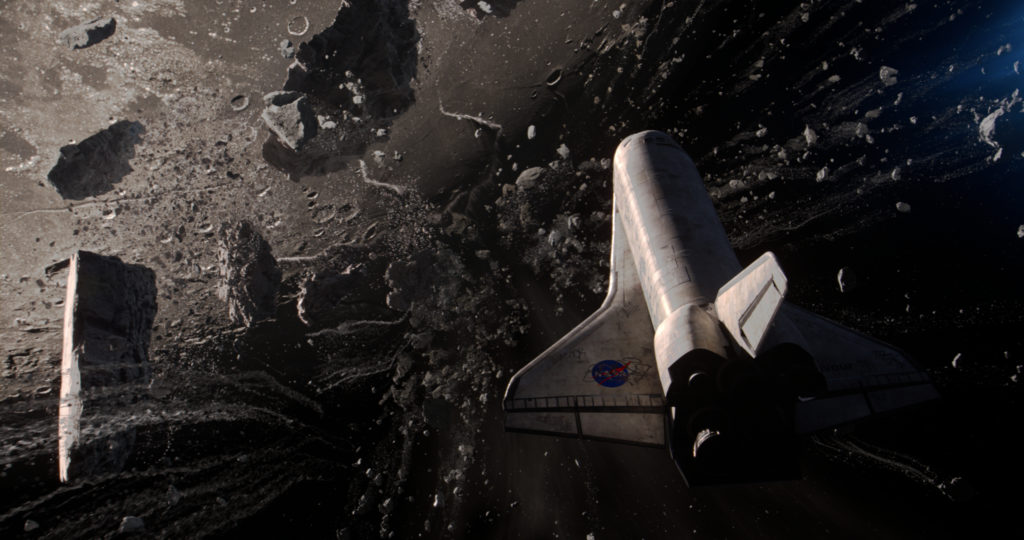
Most of this is purely down to writing. The sidebar characters aside from Berry, Wilson and Bradley are nameless, faceless cyphers of humanity crying out for a jot of empathy. Even the normally reliable Michael Pena can’t muster up a character worth remembering. Donald Sutherland pops in for two minutes of exposition before going off to kill himself in a scene I wish they’d kept in the movie, Kelly Yu collects a paycheck as a very lucky foreign exchange student staying with Fowler’s family (why?), and Eme Ikwuakor, who has a face that legitimately looks like it would collapse in upon itself if he actually smiled, is more wooden than a lumberyard of coffins as Fowler’s ex-husband and military attaché to the President. There’s a bunch of nameless kids in this film for some reason, and Patrick Wilson’s character is inexplicably forced to deal with a juvenile delinquent son as part of the backstory to his disgraced career as an astronaut, the thrust of which comprises the Gravity-inspired opening to the movie. You could take six or more main and supporting characters out of this film, trim the thing back to 90 minutes or less, and have an actually half-decent junk-science disaster film.

It’s all gormless, ineffective effluvium in a constant sewer pipe of shit, written by people who don’t understand how the universe actually works (they tip the hat to Carl Sagan, these heathens) before going all-out bonkers in one of the worst third acts to grace a disaster film in decades. It’s as if Emmerich got through When World Collide and played Contact as a double feature, only without access to Jodie Foster all we’re left with is a ticking EMP and a three-choice option of generic human sacrifice to save the world. Moonfall, as asinine as it gets in the discombobulating third act “twist” (which pays more of an homage to Neill Blomkamp’s Elysium than I’m comfortable admitting) is a complete waste of everyone’s time, a flaming bag of shit on the front porch of pop-culture relevancy, and the sooner I can wash the stain of this from my eyeballs the happier I’ll be.

